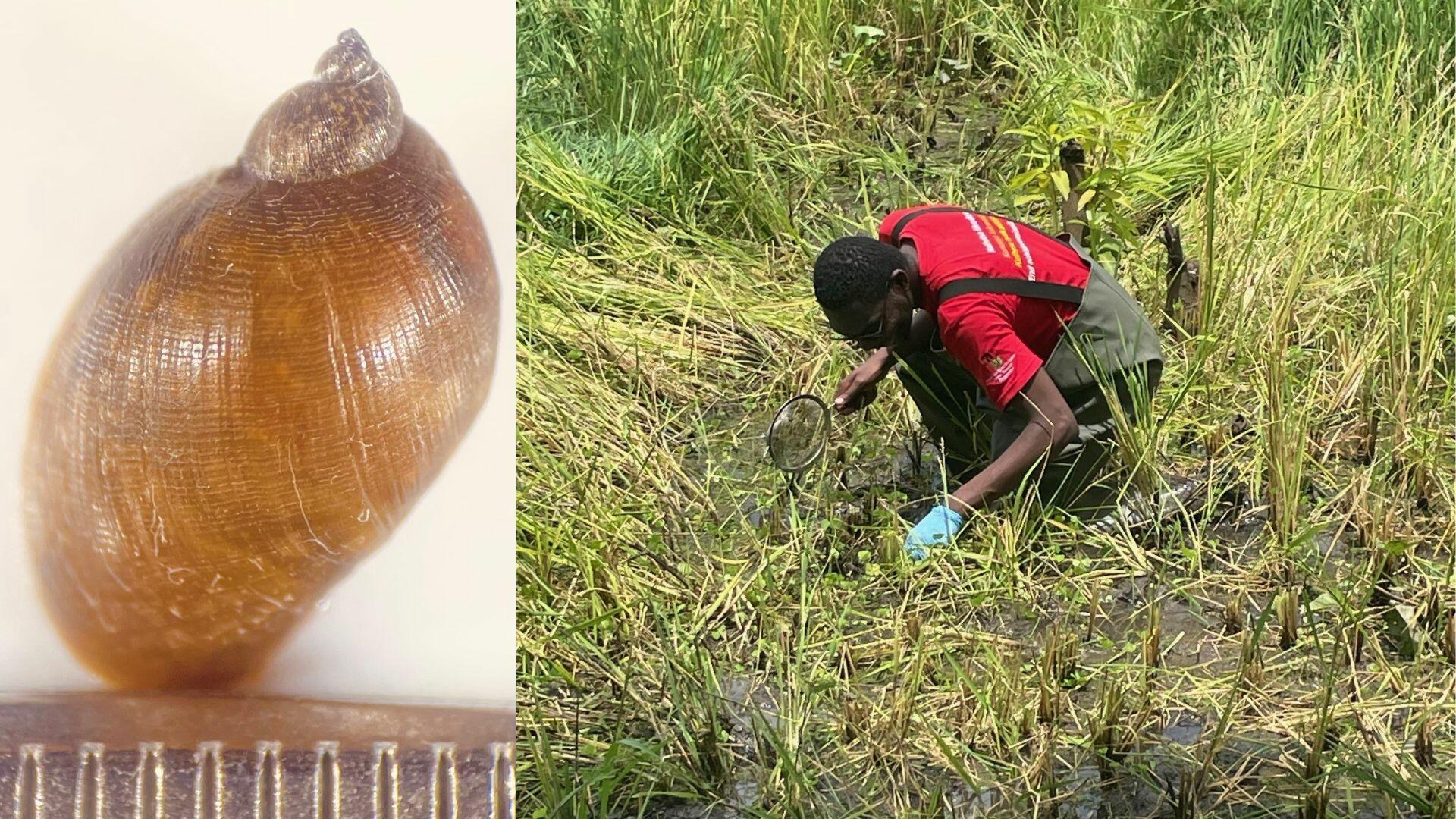
Scientists from Liverpool School of Tropical Medicine (LSTM) have discovered two invasive freshwater snail species in Malawi, prompting concerns about snail-borne disease control in humans and animals.
The snails were found during fieldwork as part of the Hybridisation in UroGenital Schistosomiasis (HUGS) project, which investigates snail-borne parasites called trematodes that can transmit the debilitating disease fascioliasis.
The snail species are called Orientogalba viridis (O. viridis) and Pseudosuccinea columella (P. columella) and have been described in two separate studies by Dr Alexandra Juhasz and Research Associate Sam Jones, working with Professor Russ Stothard and Professors Janelisa Musaya.
The presence of these invasive snails in Malawi raises concerns about their potential roles as an ‘alien’ intermediate host for various snail-borne diseases and the effects they could have on the area’s freshwater ecology.
Professor Stothard said: “We found the snails unexpectedly while working in two very different locations. In today’s globalised world, it’s not uncommon for unusual species to pop up in places they shouldn’t be. Their impact on human and animal health and the aquatic environment should be assessed.”
O. viridis, a species native to Asia, was found within Malawian rice paddies, raising the possibility that hatchling snails or eggs were carried into Malawi on rice seedlings. Rice is an increasingly common crop in sub-Saharan Africa, helping to increase food security, but it offers a perfect habitat for these snails.
P. columella, a species native to the Americas, was found in Lake Malawi, adding to a growing list of ‘alien’ invertebrates within this global biological biodiversity hotspot. Its discovery in Lake Malawi evidences a successful albeit slow intracontinental invasion within Africa, likely tracking water hyacinth dispersion, an invasive aquatic plant.
Despite O. viridis and P. columella’s potential as additional intermediate hosts for fascioliasis, molecular screening for active liver fluke infections yielded an absence of infection.
Sam Jones said: “Both of these snail species can inherently transmit liver flukes, so their presence within high-risk water contact sites where people and animals mix raises the new need for better fluke surveillance in Malawi and in neighbouring countries.”
Both studies call for increased vigilance regarding the spread of snail species and targeted research to better understand their impacts on human and animal health globally.